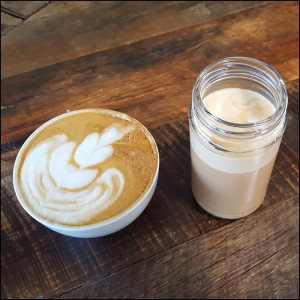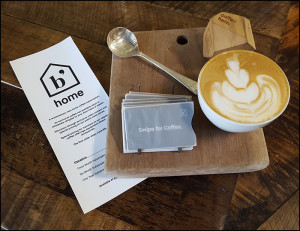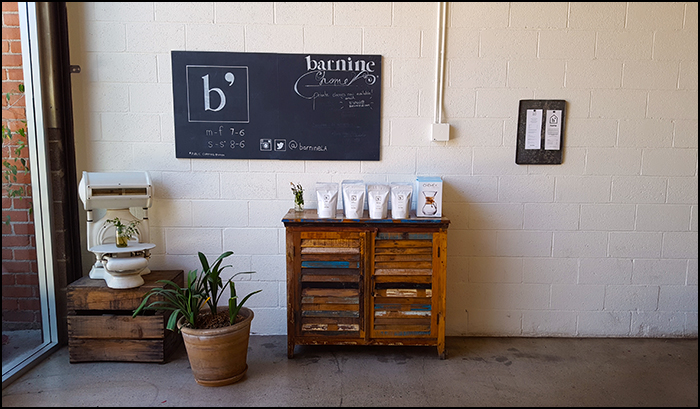An Interview with Bar 9’s Zayde Naquib.
As the national campaign to increase the minimum wage to $15 claims victories across the country, from California and Seattle to Washington D.C., the debate in Culver City rages on. The Page has covered the perspective of local business persons as well City Council members and candidates (see http://www.thefrontpageonline.com/new/?s=minimum+wage), highlighting the controversial nature of the proposed increase and its general lack of traction.
At its most fundamental, the debate is over workers’ dignity – what the philosopher Immanuel Kant would describe as treating people as ends in themselves instead of merely means to an end. The common attitude is to view minimum wage jobs, and by association the people who work them, with condescension and judgement: These workers should go to school, work harder, be thankful they have a job at all instead of being on the streets…Minimum wage jobs are not meant to be permanent, but stepping stones on the ambitious road to achieving the American Dream. The reality, of course, is not remotely so simple, but the complexities are blurred by our propensity to judge low-wage workers – and the poor – from ivory towers.
So here’s a thought experiment: If these jobs are really so unimportant that they don’t deserve a living wage, what would happen if we got rid of them altogether? No more dishwashers, cashiers, fast-food workers, lifeguards, baristas, retail employees…the list goes on. How would businesses fare without these unworthy jobs? Will the Waltons stock their own shelves? Will the fast food CEO personally flip burgers and wash dishes in each of his/her thousands of locations? Can any business actually function without these jobs? If the answer is no, then clearly these jobs are more important than business owners admit. They just don’t want to pay their employees a wage that reflects that importance.
Repeating the experiment from a social standpoint, imagine what your life would be like without services dependent on jobs paid with a minimum wage. Would you be prepared to make your own food all the time, except when you want a slow, sit-down dinner – even when you’re travelling? How about walking into a shoe store and rummaging through the warehouse to find shoes in your size? As consumers, particularly white-collar consumers, we play a part in this exploitation by simultaneously prizing cheapness while turning our noses at jobs we wouldn’t do (especially because they don’t pay well).
Setting a High Bar (9)

Where the general economic culture views employee labour as a commodity and people as resources to be exploited for profit, one business owner is refuting the dominant perspective and setting a refreshing example right here in Culver City: Zayde Naquib, whose Bar 9 is one of the area’s best coffee purveyors. (see Coffee’s Cloud 9 at the Bar Nine Collective).
At the beginning of the year, Zayde implemented a no-tipping model in which the full costs of labor, sales tax, etc., are included in the price. The move represents a commitment to hospitality by removing the ambiguities and obligations associated with tipping and focusing instead on the whole guest experience. It also presents opportunity for baristas to devote themselves to their craft in a career with long-term prospects, a contrast to the typical short-term, part-time positions available in the average coffee chain. This beautifully manifests business that treats business owners and employees as co-producers, each taking pride in their work and cooperating with a shared passion for coffee culture and satisfying customers.
I caught up with Zayde to discuss his business model, coffee, and other Bar 9 news.
Now that we’re well into 2016, how’s the new no-tipping model working for you and your associates?
Our new hospitality-included menu has been a tremendous success. We have had terrific guest response. Our bar team is getting paid better than ever, and we are now able to offer health and dental benefits to our team.
Is there anything in particular that has worked better than anticipated?
Honestly, I expected it to be very successful, so it really is meeting expectations for me there. There were some dissenting voices I heard, mostly from other people in the coffee industry. They thought guests might not get it, and we’d lose business. I have a lot of faith in our guests to be open to new ideas. They have been excited about the switch. The only thing that has been different than I expected is it really has been sort of a no-big-deal kind of transition. I thought we’d have to do some explaining in more detail with guests, but a simple explanation of why we’ve switched and people just roll with it. It’s really cool.
Conversely, what challenges, if any, arose that you perhaps didn’t anticipate? How did you manage them?
Every once in a while a person will force-leave a tip, by dropping one off while we aren’t looking or not taking it back if we say no thank you. We have a system for that where if there is an errant tip that gets left, it goes into a jar where we donate to a rotating charity as decided by our bar team every quarter. The first one is International Women’s Coffee Alliance. We’ll do another one for Quarter 2, and that charity is one that I don’t have any say in, just the bar team.
From a debate even within Culver City about the minimum wage to national efforts such as the Fight for 15 movement, it’s clear that worker compensation is an increasingly visible topic for people. What inspired you to make the move to a no-tipping business model? Was it always part of your vision to use this model, or have particular circumstances influenced you since Bar 9 first opened its doors?
I really wanted to open with it, but ended up “playing it safe” which was not the right call. Ultimately, it’s better for the employee, simpler for the guest, and the right thing for our business model. Tipping is antiquated and sets up employers to have the option of paying next to nothing for great labor, with the promise of tips. That’s not a sustainable way to build a career as an employee. As a proponent of a $15 an hour minimum wage myself, it would seem hypocritical to not offer at least that to my team. So when Danny Meyer of Union Square Hospitality Group announced he was transitioning all of his restaurants to a no-tipping, hospitality-included menu, we thought it was a great time for us to do the same.
Do you think your no-tipping model will spread to other local independent coffee purveyors? Have you gotten any reactions from the friendly competition?
I have mostly gotten questions from other coffee purveyors locally, but there’s definitely a lot of interest in pursuing this. I think it can and will be where the industry goes eventually, but it will probably be a few years at least before we see widespread adoption.
Let’s talk coffee. What coffees do you have on brew these days?
We have a fabulous coffee called Reko from Yirgacheffe that I’m loving, pops of floral and juicy blackberry. The one that is probably most exciting is a micro-lot from La Plata in Hula, Colombia, by a farmer named Dario Quilindo. We were able to purchase the entire micro-lot production this year, so Bar Nine is the only place to try this coffee for 2016. It’s exceptional!
I’m seeing some interesting trends going on, like the Flat White. What are your thoughts on the coffee market in L.A.? Any interesting coffee innovations on the horizon?
I’m not seeing a lot of innovations at the shop level right now, but things are always changing, so I expect we’ll continue to see the industry evolve as rapidly as it has the past few years. What I’m really excited about is the home market. There are some really interesting new home coffee makers we’ve had a chance to demo. They are in the prototype phase so I can’t talk specifics, but they will be really great for making enjoying great coffee even easier at home.
 Speaking of making coffee at home, you’ve started offering home brewing seminars. What can people expect from them?
Speaking of making coffee at home, you’ve started offering home brewing seminars. What can people expect from them?
They’re going to be a fantastic resource to really develop an understanding of the concept of extraction, palate development, and more. We want to be a catalyst for the budding enthusiast, the lover of fine experiences, and the home barista who wants to take their game to the next level. We have a large space where transparency is a big part of our business model. Why not try to break down the quality barrier and bring people more into our world? We list all of our upcoming classes at www.barnine.us
What other adventures are you planning for Bar 9’s patrons, as well as yourself, over the coming year?
Beyond the classes we’ll be offering, we launched a fantastic new project this summer called Bar Nine Home. It is a coffee subscription unlike any other. You can taste an exclusive coffee not available retail or wholesale, and we’ll ship it to your door every two weeks. Additionally, Bar Nine Home subscribers will have special access to some exclusive education opportunities, from video content to special dossiers on the coffee, and better pricing on equipment, filters, and accessories. It’s the coffee subscription for the new home barista or the avid pro. It’s a whole experience!
Bar 9
3515 Helms Ave
Culver City, CA, 90232
www.barnine.us





